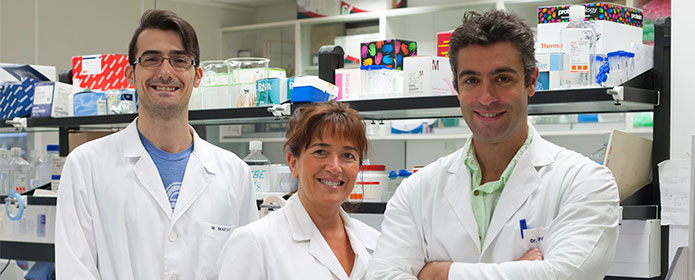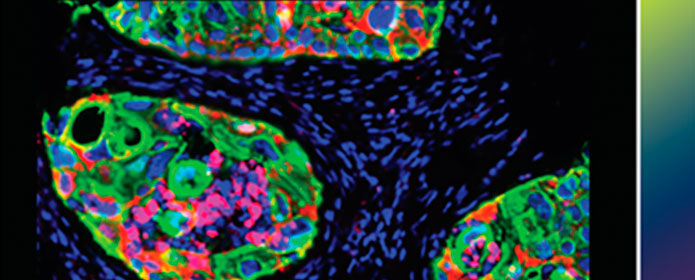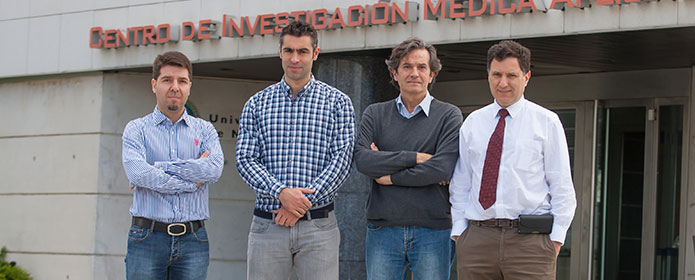New molecules against melanoma designed
Spanish scientist at CIMA of the University of Navarra led a research that shows the antitumoral role of aptamers, therapeutic molecules, in animal models

Scientists at the Center for Applied Medical Research (CIMA) of the University of Navarra have created a bi-specific aptamer that strengthens the immunological response to melanoma, slowing its growth and increasing the survival rate in the animal tumor model. This has been proven in the study led by Dr. Fernando Pastor, who is in charge of the Aptamer research line at CIMA, published in the scientific journal Oncotarget.
Aptamers are short single-stranded DNA or RNA sequences that can bind to other target molecules with high affinity and specificity. They are known as "chemical antibodies" as, due to their current application in biomedical research, they are shown to be an alternative for directed therapies, both at pre-clinical and clinical levels.
This research specifically offers a strategy to fight melanoma. It consists of the administration of a bi-specific aptamer which targets two proteins: the MRP1 protein, which is overexpressed in these tumors and makes them resistant to chemotherapy; and the CD28 receptor, expressed by the T-lymphocytes (immune cells which destroy tumors), which it costimulates and activates. Thus, this molecule can bind to the tumor and emit the signal for the activation of the lymphocytes which infiltrate the tumoral lesions. “The results show that this MRP1-CD28 bivalent aptamer strengthens the immune response to the tumor, which results in less tumor growth and a greater survival rate in the animal model", explained Dr. Mario Martínez Soldevilla, lead author of the article on whose doctoral thesis this work is partially based.
Turning tumors into vaccinesThis research also shows that the tumor itself may be turned into an endogenous vaccine. By coating the irradiated tumor cells with the CD28 aptamer, the researchers have created a new vaccine called CD28Aptvax.
For this work, Dr. Pastor has recently received a grant from the Worldwide Cancer Research Foundation (WCR) which reinforces the CIMA work in this area. "This research line focuses on converting the patient's own cancer cells in situ into endogenous vaccines. Our objective is to focus on the induction of the immune response to the tumor", said Dr. Pastor.
The WCR is an international foundation which funds innovative cancer research with special interest in the development of effective strategies in the diagnosis and treatment of the disease.

Vacuna CD28Aptvax




